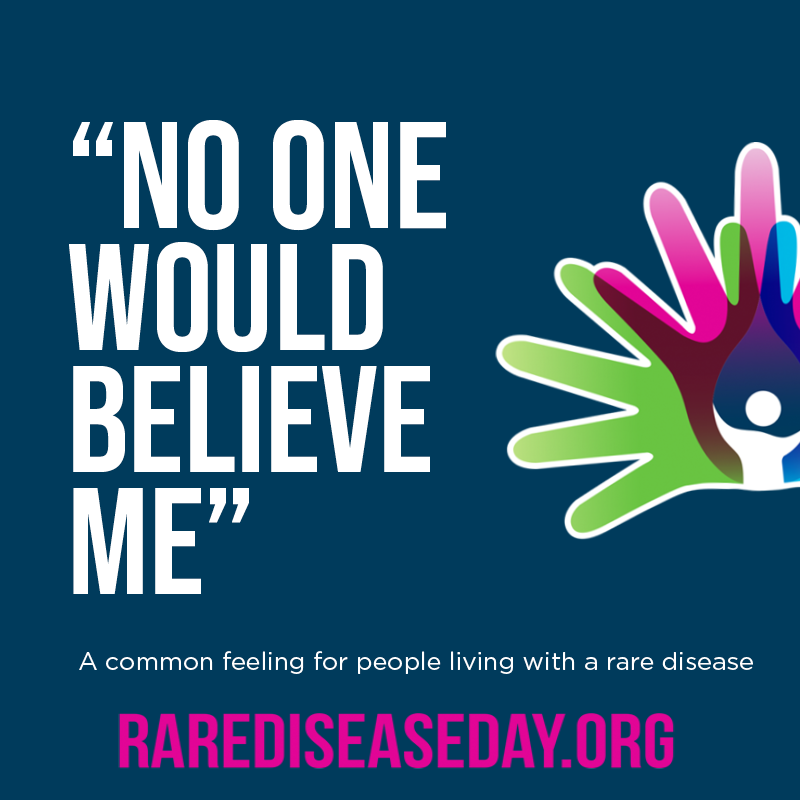For some, the day we learned of our rare disease diagnosis is a happy day. Odd, isn’t it?
Imagine having your closest friends and family thinking that you are overreacting a bit, or that you are searching for some attention? It might be frustrating!
Having a diagnosis can be very important, not only in order to consider medical needs, but sometimes it can also come as proof that something is happening to the body, proof to others that there is something going on.
Several people across the globe, with different rare diseases, have shared their story, telling us about needing to be heard and understood.

Megan was one of those people who were constantly being doubted. She is living with Ehlers-Danlos syndrome in the United States and before getting a diagnosis even doctors didn’t take her seriously.
“I had a genetic blood panel done and met with a team of doctors who told me I didn’t have any type of connective tissue disorder. They also doubted the pain and symptoms I was experiencing with my scapulas. It can be very difficult to be a teenage girl and be taken seriously. This wasn’t the first or the last time I’d be doubted about my symptoms. Being doubted really plays with your head. I was never a dramatic attention seeking individual. Luckily, I had one surgeon who did believe me about my scapular pain”.
 A similar thing happened to Gabby, whose journey through diagnosis to complex regional pain syndrome was not taken seriously on several occasions.
A similar thing happened to Gabby, whose journey through diagnosis to complex regional pain syndrome was not taken seriously on several occasions.
“I was in and out of the hospital for around 2 months straight and that’s how my life went. Doctors didn’t believe me because it wasn’t something you automatically think it’s crps. I think more people need to realize that just because you can’t see it doesn’t mean it’s not there.”
Vicky’s son is living with Alternating hemiplegia of childhood in the United Kingdom and she can tell how difficult it is for so many parents to get their voices heard without being questioned.
I knew that my baby wasn’t hitting his milestones No one would believe me. I was just a panicky first time mum, all children develop at their own pace, maybe he just liked holding his arm in that position. If I was given a pound for every time someone said to us, they all develop at their own speed or such and such child didn’t talk until they were X age but now you can’t stop them. I know they were trying to help but in reality all they were doing was belittling how we were feeling and what we were going through.
“My uncles, sisters, aunties, cousins, niece had similar symptoms and she had…… why don’t you ask the doctors about it”
The thing is you have to place trust in the doctor’s, trust that they are the experts and that they are best placed to find the answer. So every time someone says something like that it feels like they are questioning not only the doctors but you as a parent.
Are you or a family member living with a rare disease and have experienced something similar?
Raising awareness for people living with a rare disease remains a very important task. By identifying common challenges, we can share our experiences with others who are experiencing the same situation and going through the same feelings.
